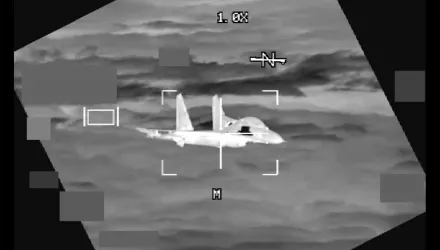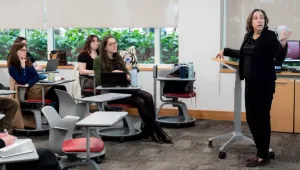IN RECENT weeks the news has been full of what Britain can no longer afford. The headlines have been dominated by stories of cuts, national debt, government programmes to be cancelled and services to be axed.
This atmosphere encourages us to see cuts in terms of items on a balance sheet and discourages us from seeing how such cuts will affect our security as a nation.
Consider the recent news that if the Conservative Party wins the next election, they will review three big defence contracts: two aircraft carriers, the Eurofighter, and the A400M transporters. The carriers are already being built in the Scotstoun and Govan shipyards on the Clyde and at Rosyth. If they are cancelled, 4,600 people will lose their jobs. Quite apart from that, cutting them will weaken our ability to defend ourselves as a country at home and defend our interests abroad.
While the news is full of Britain's debt, this concern may not be at the forefront of your mind, but I believe that making defence decisions on the basis just of what is in the news today is a dangerous mistake.
Now consider what the news would have been like in 1981. Iran agreed to free fifty-two American hostages. Israel annexed the Golan Heights from Syria, and Egyptian president Anwar Sadat was assassinated. No British person watching these items pass by on the nightly TV news would have considered that a year later, we would be defending the Falkland Islands from an Argentinian attack.
Next, consider what the news would have been like in 1989. Tiananmen Square, Botha quits as South Africa's president, the fatwa against Salman Rushdie, and, of course, the fall of the Berlin Wall. No soldier watching any of it would have thought that next year, he would be in a hot tank in the sands of the Iraqi desert, helping to liberate Kuwait from Saddam Hussein's Iraq.
Finally, consider 2000. The Millennium Dome, mad cow disease, Milosevic is finally overthrown in Serbia, and the second intifada starts in Palestine. If you had told someone then that next year we would be beginning a long war in the deserts of Afghanistan, of all places, they would probably not have believed you.
The point is that when it comes to international threats and dangers, you can never tell what is around the corner. You cannot make long-term decisions about what we are going to need tomorrow based on what we think we need today.
General Sir Richard Dannatt, the former chief of the General Staff, put it well when he said, "the man who looks ten years out and says he knows what the strategic situation will look like is, frankly, the court jester."
When you fill your car with petrol or turn on the gas, you are often using resources which we get from other countries only because it is safe to do so.
Our daily life depends on global security and stability, but the global security environment is constantly changing. There will always be new foreign governments with new priorities and new ambitions, not always friendly to us. Defence spending is an insurance policy.
The bottom line is that we cannot make defence decisions only on those threats which are foreseeable. History shows that the biggest threats are actually those we do not foresee.
It is no good making defence policy decisions based on the news cycles of 2009, and then complaining that we cannot adequately defend ourselves and our interests in 2020.
Azeem Ibrahim is a Research Scholar at the International Security Program, Kennedy School of Government at Harvard University.
Ibrahim, Azeem. “Long-term Defence Strategy Cannot be Based on the News.” The Scotsman, September 25, 2009





